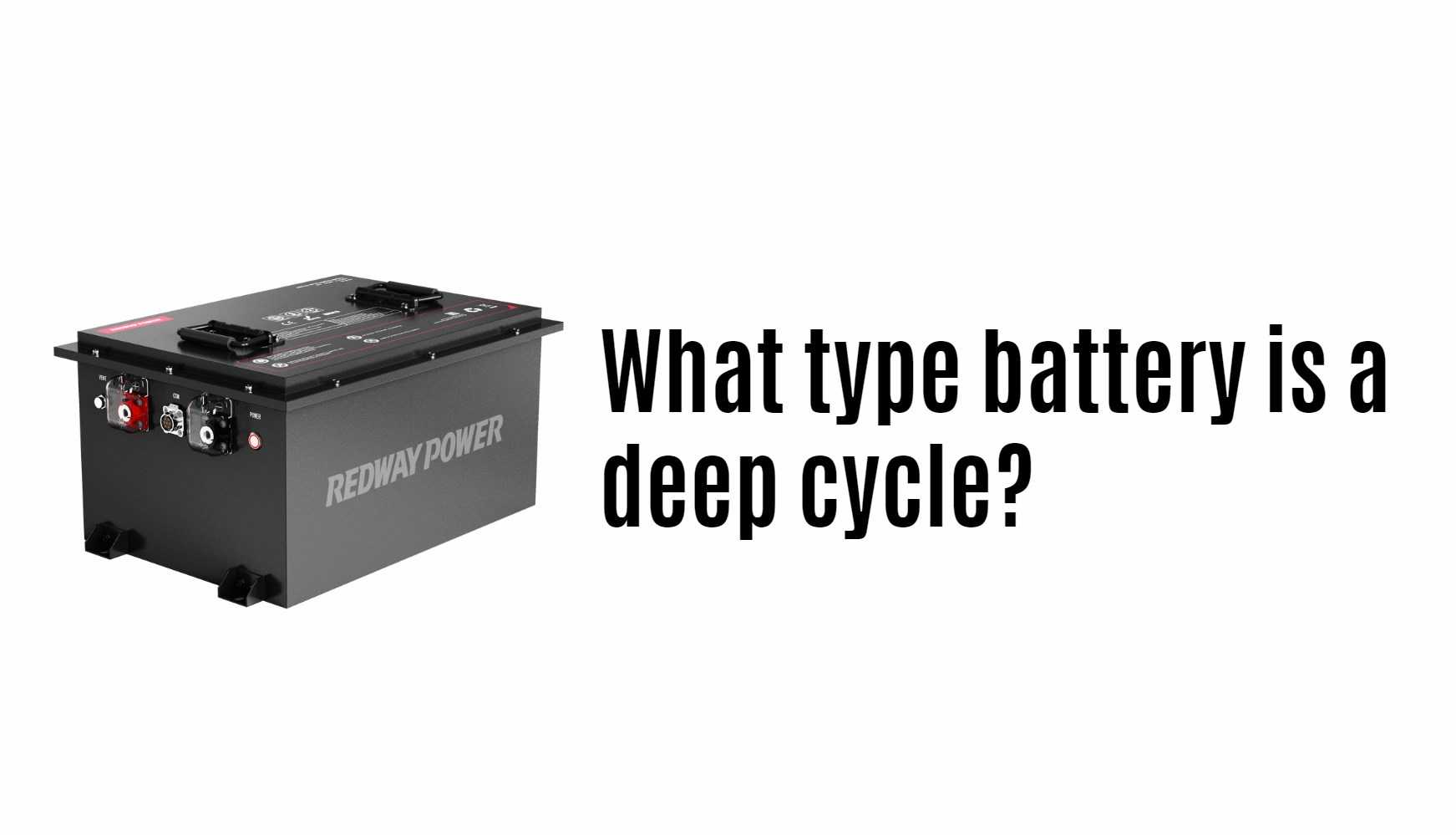A deep cycle battery is designed to provide a steady amount of power over an extended period, making it ideal for applications like solar energy systems, electric vehicles, and marine equipment. Unlike starter batteries, which deliver quick bursts of energy, deep cycle batteries can be discharged and recharged many times without significant damage.
Understanding Deep Cycle Batteries
Deep cycle batteries are engineered for sustained energy output, allowing them to be used in various applications where consistent power is essential. This section explores the types of deep cycle batteries, their characteristics, and their common uses.
Types of Deep Cycle Batteries
- Lead-Acid Batteries
- Flooded Lead-Acid Batteries: These are the traditional deep cycle batteries. They require regular maintenance, including checking electrolyte levels and ensuring proper water levels. Flooded lead-acid batteries are cost-effective but can be bulky and heavy.
- Absorbent Glass Mat (AGM) Batteries: A type of sealed lead-acid battery, AGM batteries use fiberglass mats to absorb the electrolyte. They are maintenance-free, resistant to vibration, and can be mounted in any position. AGM batteries typically have a longer lifespan than flooded lead-acid batteries.
- Lithium-Ion Batteries
- Lithium Iron Phosphate (LiFePO4): This type of lithium battery is becoming increasingly popular for deep cycle applications due to its long lifespan (up to 5,000 cycles), high efficiency, and lightweight design. LiFePO4 batteries can be discharged up to 100% without damage, making them ideal for users who need maximum usable capacity.
- Lithium Nickel Manganese Cobalt (NMC): While not as common for deep cycle applications as LiFePO4, NMC batteries are known for their high energy density and efficiency. They are often used in electric vehicles and other high-drain applications.
Key Characteristics of Deep Cycle Batteries
- Depth of Discharge (DoD): Deep cycle batteries can typically be discharged to a much lower level than standard batteries without suffering damage. For example, lithium deep cycle batteries can be safely discharged up to 100%, while lead-acid batteries should not be discharged below 50%.
- Cycle Life: The number of charge and discharge cycles a battery can endure before its capacity significantly diminishes varies by type:
- Lead-acid batteries typically last between 500 and 1,000 cycles.
- Lithium-ion batteries can last from 2,000 to 5,000 cycles or more.
- Maintenance Requirements: Lead-acid batteries often require regular maintenance checks, including monitoring electrolyte levels and cleaning terminals. In contrast, lithium-ion batteries are generally maintenance-free.
- Weight and Size: Lithium deep cycle batteries are significantly lighter than lead-acid counterparts, making them easier to handle and install in various applications.
Comparative Analysis Table
| Feature | Lead-Acid Batteries | Lithium-Ion Batteries |
|---|---|---|
| Depth of Discharge | Up to 50% | Up to 100% |
| Cycle Life | 500 – 1,000 cycles | 2,000 – 5,000 cycles |
| Maintenance | Requires regular checks | Maintenance-free |
| Weight | Heavier | Lighter |
| Charging Time | Longer (6-12 hours) | Shorter (1-5 hours) |
| Cost | Generally lower upfront cost | Higher initial cost |
Latest News
- Recent advancements in lithium battery technology have led to improvements in energy density and thermal management systems.
- A new study highlights the environmental benefits of using lithium deep cycle batteries over traditional lead-acid options due to their longer lifespan and recyclability.
- Manufacturers are increasingly integrating deep cycle batteries with renewable energy systems for enhanced efficiency.
Redway Expert Comment
In our experience at Redway Battery, deep cycle batteries play a crucial role in various applications that demand reliable power over extended periods. Lithium iron phosphate (LiFePO4) batteries stand out due to their longevity and efficiency. As technology evolves, we remain committed to providing high-quality solutions that meet diverse energy needs while ensuring optimal performance.” ConclusionIn summary, deep cycle batteries are essential for applications requiring sustained power output over time. With options ranging from traditional lead-acid types to advanced lithium-ion solutions like LiFePO4, users can choose the best battery type based on their specific needs for efficiency, lifespan, weight, and maintenance requirements. As technology continues to improve, deep cycle batteries will remain a vital component in energy storage solutions across various industries.




